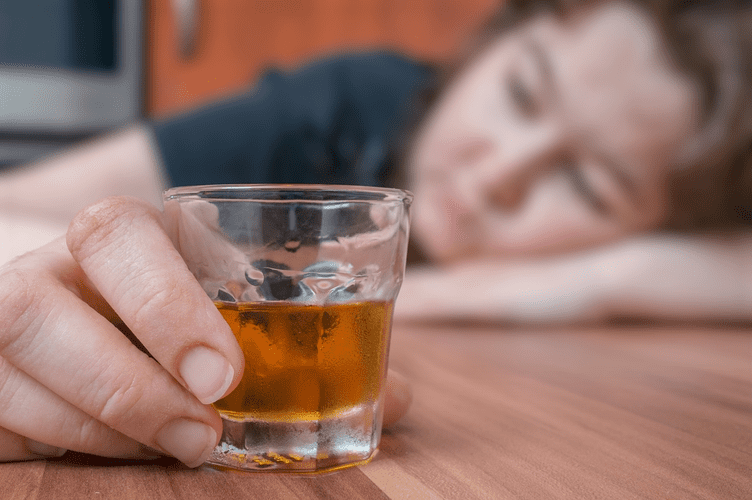There is also evidence that alcohol can disrupt or delay puberty. Current research points to health risks even at low amounts of alcohol consumption, regardless of beverage type. Keep reading for more information on how alcohol can affect your body. Almost always, people feel nervous or defensive about their drinking, which is one reason this very common problem so often goes undetected or unaddressed. Therefore, primary care physicians often make a point of use time during a visit to provide education about drinking and its dangers.
Why Should We Be Concerned About AUD and Alcohol Addiction?
It’s worth noting that current guidelines advise against drinking alcohol as a way to improve health. Alcohol has long been considered a « social lubricant » because drinking may encourage social interaction. Having a drink while getting together with family or friends is often part of many special occasions. The first step toward a person’s recovery is to acknowledge they have an alcohol dependency problem. A person who drinks excessive alcohol may not be the first to realize it is a problem.
Find more top doctors on
This is especially https://ecosoberhouse.com/ true for teens who attend parties where drinking is the primary activity. You might think binge drinking is safe when you only do it occasionally, but that couldn’t be further from the truth. National Institute on Alcohol Abuse and Alcoholism website.
- Together, they harness the full potential of biomedicine through collaborative research, education and clinical care for patients.
- Or a doctor could prescribe drugs to assist with other emotions common in recovery.
- Despite the potentially lethal damage that heavy drinking inflicts on the body—including cancer, heart problems, and liver disease—the social consequences can be just as devastating.
- Some of these are inpatient or residential programs, where you stay at a treatment center for a while.
Do you need a professional diagnosis to get help?
Problem drinking can also damage your emotional stability, finances, career, and your ability to build and sustain satisfying relationships. Alcoholism and alcohol abuse can also have an impact on your family, friends and the people you work with. In addition to physical signs and symptoms, a person living with AUD may also experience behavioral changes or symptoms.


It can help someone handle withdrawal symptoms and emotional challenges. Outpatient treatment provides daily support while allowing the person to live at home. Moderate drinking is typically defined by public health agencies as up to one alcoholic drink per day for women and up to two for men. A standard drink is 12 ounces of beer, 5 ounces of wine or 1.5 ounces of distilled spirits. But experts caution that even within these guidelines, individual risk varies. Factors including age, genetics, body size and existing health conditions all influence how alcohol affects a person.

Alcohol addiction may involve several different treatment methods. It’s important that each person get involved in a recovery program that will support long-term sobriety. This could mean an emphasis on therapy for someone who is depressed, or inpatient treatment for someone with severe withdrawal symptoms.
A doctor or substance abuse expert may be able to help a person look at the consequences of drinking. A nonjudgmental approach to the discussion is essential. If an individual is beginning to think about alcohol as a problem worth trying to solve, educational groups may provide support for weighing the pros and cons of drinking. When asked how alcohol problems are treated, people commonly think of 12-step programs or 28-day inpatient treatment centers but may have difficulty naming other options.
Does drinking three beers a day make me an alcoholic?
Studies show most people with this condition recover, meaning they reduce how much they drink, or stop drinking altogether. They may start drinking to cope with stressful events like losing a job, going through a divorce, or dealing with a death in their family or a close friend. Talk to your healthcare provider if you’re under stress and think you may be at risk for relapse. Nearly 30 million people in the U.S. over the age of 12 struggle with alcohol use disorder (AUD). This is a chronic disease characterized by an inability to stop or control one’s drinking, as well as a constant preoccupation with alcohol. It’s important to know the signs and symptoms of alcohol addiction so you can get treatment for yourself or a loved one.
Alcohol use can have a big effect on the people close to you, so couples or family therapy can help, too. Alcoholism is a common and different term for alcohol use disorder. Milder cases — when people abuse alcohol but aren’t dependent on it — are as well. i have an alcohol problem Alcohol causes changes in your brain that make it hard to quit. Trying to tough it out on your own can be like trying to cure appendicitis with cheerful thoughts.
Even though alcohol related disorders are very common, relatively few individuals recognize the problem and get help. Therefore, screening is very important, whether primary care physicians or friends and family do it. heroin addiction A person with alcohol use disorder has come to rely on alcohol physically, psychologically and/or emotionally. The brain adapts to the presence of alcohol and undergoes persistent changes. When alcohol use suddenly stops, the body is not accustomed to being alcohol free.
Drinking increases the risk of myopathy or muscle wasting. Heavy alcohol use raises the risk for fractures and even low levels of alcohol intake increase the odds for recurrent gout attacks. Alcohol also impairs bone fracture repair and reduces bone density. Drinking too much alcohol can weaken the immune system, making the body a much easier target for disease. Drinking a lot on a single occasion slows the body’s ability to ward off infections–even up to 24 hours later. Alcohol dependence also means that you have developed a tolerance to drinking.
However, those guidelines also emphasize that people who don’t currently drink shouldn’t start. A 2024 report from the American Association for Cancer Research concluded that more than 5% of all cancers in the U.S. are attributable to alcohol use. The more alcohol consumed, the greater the risk of cancer, but the risks start with any alcohol consumption.
